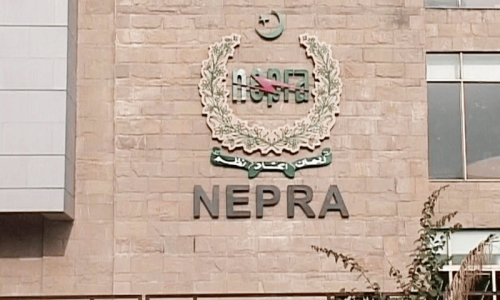ISLAMABAD: The Sindh government is expected to move the Council of Common Interests (CCI) against a decision by the Indus River System Authority (Irsa) to divert 15,000 cusecs of water from River Indus to the Jhelum-Chenab Zone through the Chashma-Jhelum Link Canal.
Sources privy to the development told Dawn that Sindh’s Irsa member, Syed Mazhar Ali Shah, had written a dissenting note on the majority decision taken about a week ago.
In his note, Mr Shah opposed the decision, saying the Indus Zone was stressed out because of low storage and it was not appropriate to divert water from the Indus to the Jhelum-Chenab Zone to facilitate the Punjab. He also said the Sindh government could even move the CCI against the decision.
To avoid controversy, Irsa reduces amount of water from 15,000 to 5,000 cusecs
However, Irsa’s Punjab member Rao Irshad Ali Khan argued that if Sindh believed the Indus Zone was under pressure, it should stop water discharges downstream of Kotri.
Irsa says water distribution its responsibility
In allowing the 15,000-cusec diversion from the Indus to the Jhelum Zone, Irsa had stated last week that additional releases through the Chashma-Jhelum Link Canal would be made through an adjustment in Punjab’s own share, without affecting any other province’s share.
The Irsa decision and the Sindh member’s dissenting note have already been sent to the Sindh irrigation secretary.
It has been Sindh’s stated position that the Chashma-Jhelum Link Canal is a non-perennial canal, which can only be operated during floods and cannot be used to divert water from one zone to another.
However, in an attempt to avoid another controversy, Irsa on Friday decided to reduce discharges to the canal from 15,000 cusecs to 5,000 cusecs as flows in the Chenab increased following rains in the area, an official said.
About 2,000 cusecs of water, separately being released for the Greater Thal Canal, would continue in addition to the 5,000 cusec release for Chashma-Jhelum, he said.
Irsa also reduced discharges from Tarbela Dam from 195,000 cusecs to 165,000 cusecs on Friday in a bid to minimise political pressure from Sindh, sources said.
The regulator reported a 205,700 cusec inflow in River Indus at Tarbela Dam with the water level at 1,483.30 feet on Friday against a dead level of 1,380 feet. Inflows in the River Jhelum at Mangla were recorded at 66,000 cusecs as Mangla’s conservation level stood at 1,218.30 feet against the dead level of 1,040 feet.
Inflows in River Chenab at Marala were recorded at 76,868 cusecs as total inflows at rim stations stood at 403,000 cusecs.
Published in Dawn, July 26th, 2014











































